Canada Auto Sales Recap: February 2015
FCA Canada outsold the Ford Motor Company by 3690 units in February 2015, stretching the company’s year-to-date lead over second-ranked FoMoCo to 7162 sales.
Keep in mind, FCA (formerly Chrysler Group) was more than 5000 sales ahead of Ford Canada at this time last year but couldn’t hold on for an annual title.
Ford continues to be the top-selling automobile brand in Canada, however, despite a 9% drop in February. Ford car sales plunged 28% last month and the brand’s utility vehicles dropped 20%. As the overall industry grew 3% year-over-year and passenger car sales improved by a small margin, the Ford car sales decline stuck out like a sore thumb.
Car volume at Audi, Buick, Cadillac, Chevrolet, Dodge, Fiat, Honda, Hyundai, Infiniti, Jaguar, Kia, Lexus, Mazda, Mitsubishi, and Volvo also decreased in February 2015. Big improvements at Volkswagen, Nissan, and Toyota helped push the car market forward.
Toyota also claimed the title of Canada’s best-selling car with the Corolla. This marks the second consecutive month in which the Honda Civic, Canada’s best-selling car in each of the last 17 years, failed to end a month as Canada’s top-selling car. Corolla volume increased by two units. Civic sales tumbled 15%. The Elantra, January’s leader, plunged 34%.
If cars struggled to make significant gains, MPVs grew just 2%, and SUV/crossover growth completely ground to a halt, how did the Canadian new vehicle market experience its highest-volume February since 2008?
Trucks.
Pickup trucks.
February pickup truck sales jumped 12%, a gain of nearly 2300 units compared with February 2015. That’s akin to adding the volume of seven more versions of the seven lowest-volume pickup trucks in Canada: Tundra, Tacoma, Colorado, Canyon, Titan, Frontier, and Ridgeline.
In spite of a marginal F-Series improvement – the best seller was up just 1% – big gains from General Motors’ full-size twins, a 6% Ram increase, and 648 new GM midsize sales powered the truck market to 20% market share in the industry. Wasn’t cheaper oil and a struggling oil patch supposed to slow the Canadian truck market?
Hugely successful pickup trucks are certainly helpful, but they’re not yet an absolutely vital component for an automobile manufacturer to be taken seriously in Canada. Nissan is booming despite tumbling truck sales and just outsold Honda for the first time since June 2011. The Volkswagen brand is up 19% so far this year, certainly not because of an Amarok but rather a new Golf.
But consider the top three manufacturers in Canada without trucks. FCA, with its pickup truck lineup, was up 1.5% in the first two months of 2015, but without the Ram P/U, FCA volume slid 0.1%. The F-Series accounts for 53% of FoMoCo sales in Canada, not just Ford brand sales but total Ford/Lincoln volume. Four pickup truck nameplates helped GM to a 6% increase over the last two months even as non-truck GM sales slid 10%.
Timothy Cain is the founder of GoodCarBadCar.net, which obsesses over the free and frequent publication of U.S. and Canadian auto sales figures.
More by Timothy Cain
Latest Car Reviews
Read moreLatest Product Reviews
Read moreRecent Comments
- Steve Biro If the U.S. government wants to talk about banning all connected cars - or at least the collection and sharing of information from said vehicles - I’m all ears. Otherwise, don’t waste my time.
- Ajla Both parties are in favor of banning Chinese vehicles so I don't see how it won't happen in the next year.
- Add Lightness I don't waste a lot of time watching nothing much happening by watching the YouTube 6 minute highlights.
- MrIcky from my rental fleet experience, id rather drive one of these than a camry.
- Add Lightness Protectionist fear competition under the guise of paranoia.



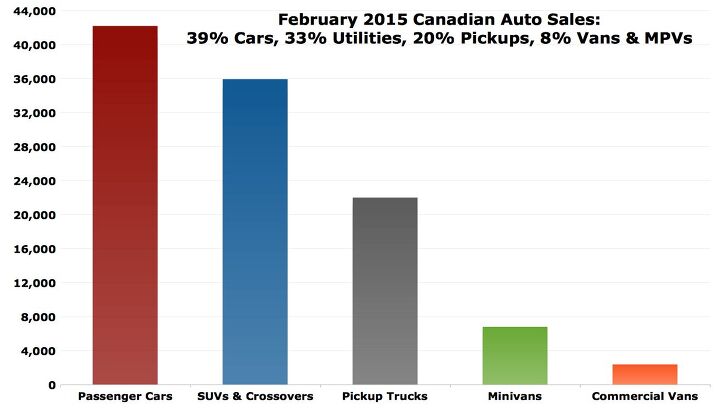
















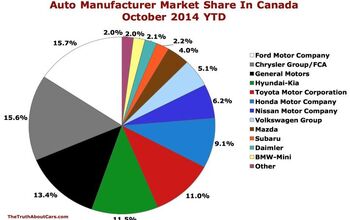
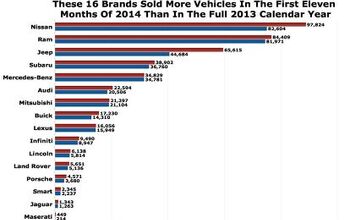
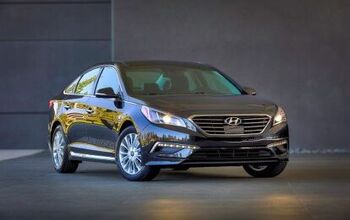
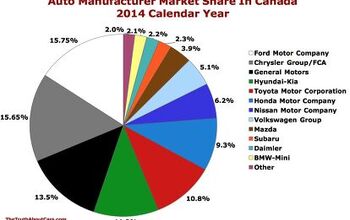
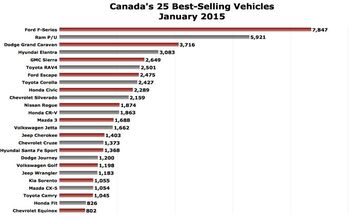





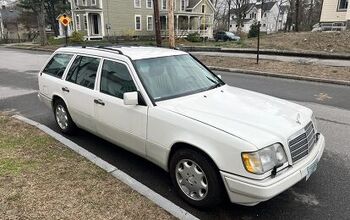




Comments
Join the conversation
I live in Hamilton and the FCA dealers are quite popular but rarely do I see or hear of "Deep discount" ads.
You can go to the ram website now and see $10,500 off. Dealer ads go over $13,000 in discounts.